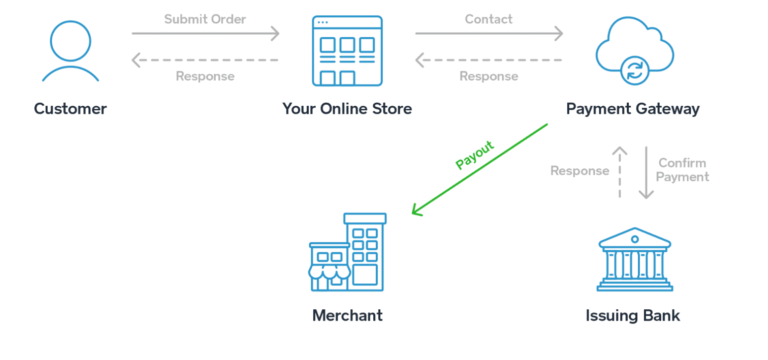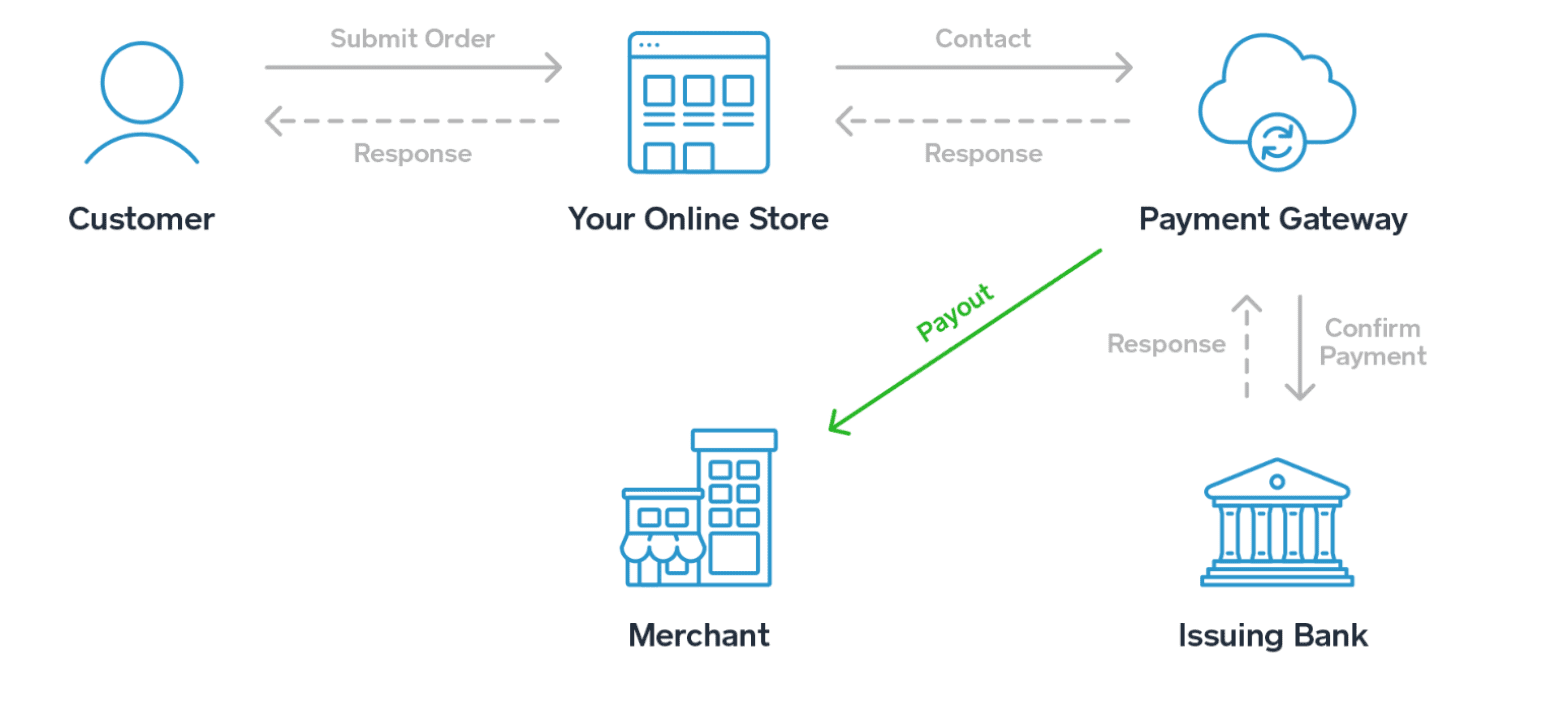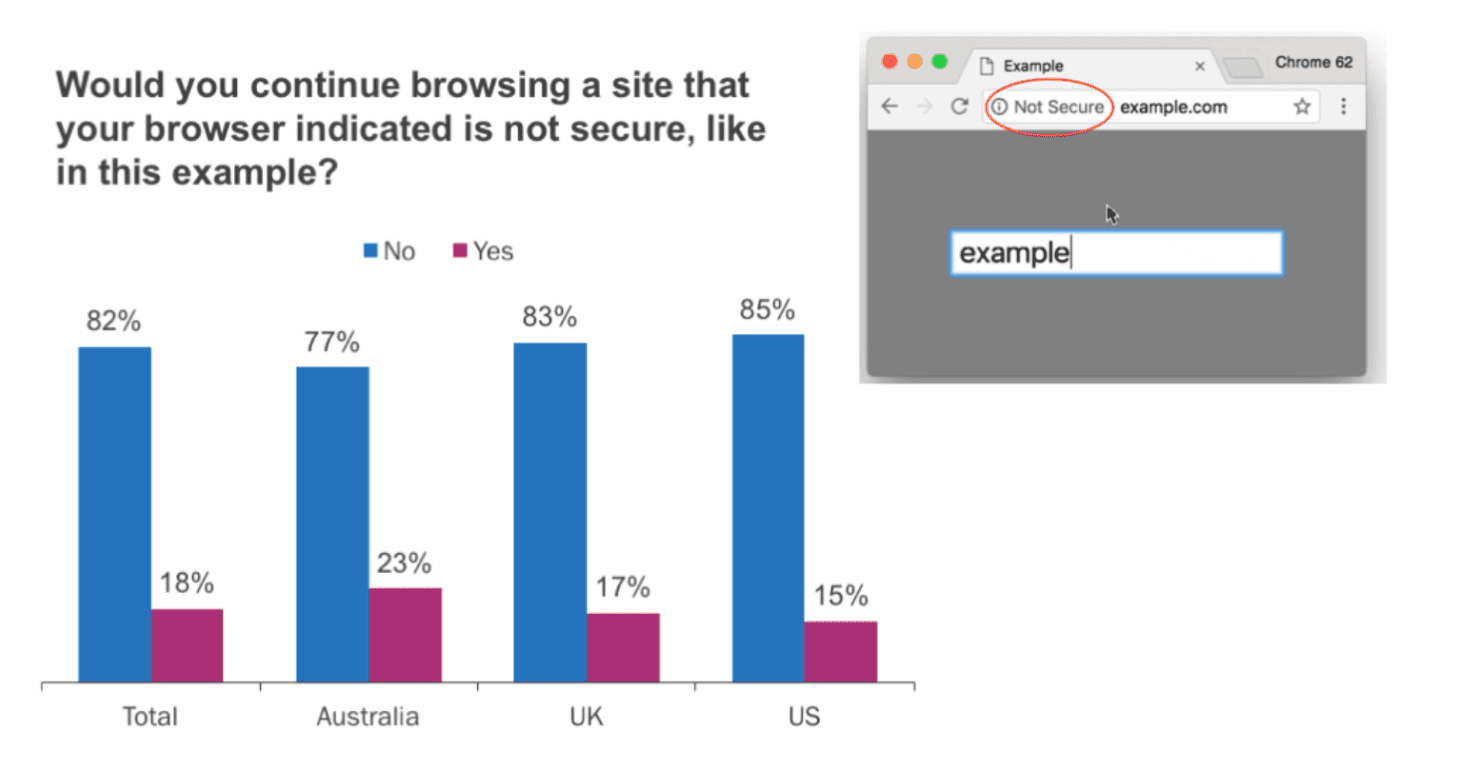Security for credit card processing on ecommerce websites is a crucial, yet often overlooked aspect of selling products online.
As the owner, operator, or CTO of an ecommerce business, data protection and security should be your top priority of processing payments online. Not only do you need to take precautions to safeguard consumer information, but you should also be taking steps to prevent fraud.
There are lots of different factors that must be taken into consideration to safely process credit cards online. As an expert in the credit card processing industry, I’ll explain what you need to know about credit card processing security for ecommerce websites.
Secure Payment Gateway
The best tool for protecting your ecommerce transactions is a payment gateway. What is a payment gateway?
In short, this tool adds security to ecommerce transactions by encrypting and tokenizing cardholder data. The process of tokenization makes the cardholder’s information less susceptible to theft from cybercriminals.
Think of your payment gateway as a checkpoint for transactions between consumers and merchants. Here’s a visual representation of the role played by a payment gateway during an ecommerce transaction.
As you can see, the payment gateway is responsible for handling sensitive information from multiple parties. But with tokenization and encryption, that data is useless to potential thieves.
Every ecommerce business needs to have a payment gateway; it’s impossible to process online credit card transactions without one.
The majority of merchant service providers come with ecommerce solutions out of the box. This typically includes payment gateways and shopping cart integrations. With that said, some of you might need to get this on your own from a third party service.
Data Storage
Ecommerce companies love to store information about their customers. For example, you might have CRM software that allows you to personalize website content and email campaigns based on factors like the age, gender, or location of your customers.
With that said, you shouldn’t store cardholder data (CHD) or sensitive authentication data (SAD).
Even if you allow customers to save payment information for faster checkouts, that data shouldn’t be located on your servers or be accessible by any of your employees. Third-party shopping cart software and ecommerce platforms can safely store that data in a remote location. It should be encrypted as well, to protect against a potential breach.
It’s always the merchant’s job to protect the cardholder. So even if you’re using a third-party service for data storage, you need to make sure that the service you’re using is legitimate.
Sensitive data should never be stored on your own servers or locally on any hardware.
SSL Certificate
SSL stands for “secure socket layer.” SSL encryption is a way for any website to keep visitors safe; it’s not exclusive to ecommerce sites.
Often times, your web hosting service or ecommerce platform will come standard with an SSL certificate. If not, you’ll have to pay a monthly or annual fee to add it to your site. This is definitely something that you can’t overlook or skip out on.
While payment gateways protect cardholder information during the transaction process, SSL certificates encrypt website visitor data as it moves between the server and website.
According to a recent study from HubSpot, 85% of consumers in the US would not continue browsing on a site indicated as not secure.
Adding an SSL to your site ensures visitors that the site is secure, which makes customers feel more comfortable about entering their credit card information. Most web browsers tell users if a page is secure or not. Failure to secure your ecommerce site with an SSL will be detrimental to your success.
PCI Compliance
Credit card companies mandate payment card industry (PCI) compliance to ensure the security of transactions. PCI requirements are necessary for processing payments through any medium, whether it’s in person or online from an ecommerce shop.
There are four different levels of PCI compliance.
Merchants will have different standards to follow, depending on the transaction level. Any merchant that fails to comply with the PCI standards will be subject to PCI non-compliance fees.
In short, not following PCI mandates will be costly. Not only are you putting your customers at risk, but you could also be assessed with additional fees from your credit card processor.
Make sure you fully understand what you’re required to do as an ecommerce website to comply with the most up to date standards. Your requirements might be different if you’re processing B2B transactions or government credit cards on your ecommerce website. These types of transactions won’t have the same PCI level as a standard consumer purchase.
Fraud Prevention
In addition to protecting cardholder data from thieves, you should also have security measures in place to prevent fraudulent transactions.
As of February 2020, card-not-present fraud (which includes ecommerce) is 81% more likely than point-of-sale fraud.
Processing fraudulent transitions can be a costly mistake for ecommerce sites. Not only will you lose out on the cost of goods sold, but you’ll also incur chargeback penalties.
Check out our guide on fraud scoring methods for large-scale ecommerce websites to learn more about how to protect against ecommerce fraud.
Software
A simple way to keep your ecommerce site secure is by keeping your software up to date.
Ecommerce platforms, CMS software, and other website backend software are constantly being updated to protect against new threats. Failure to update your system leaves you vulnerable to cyber attacks.
You should also make sure that your payment processor is using the latest software to process transactions online.
Don’t let your website security software lapse. Set everything up for recurring payments and automatic renewals.
Final Thoughts
Payment processing security is something that can’t be ignored by any business. But as an ecommerce company that processes credit card transactions online, you are more susceptible to security breaches.
It’s your responsibility to protect cardholder data and facilitate safe transactions.
Failure to keep up with the latest ecommerce security best practices can be a costly mistake for your business. If you have questions about your PCI compliance level or need additional assistance, contact our team here at Merchant Cost Consulting.
In addition to answering your questions or concerns, we can also help you save money on credit card processing.



